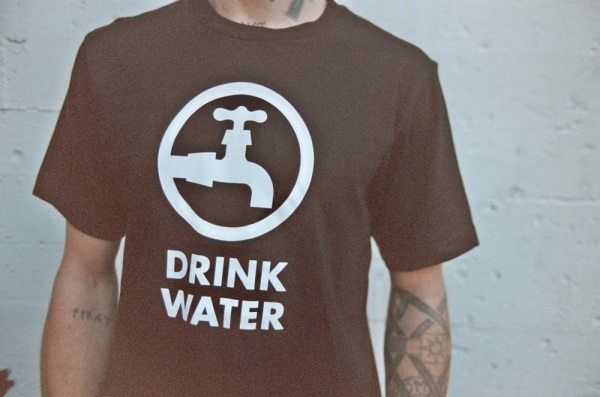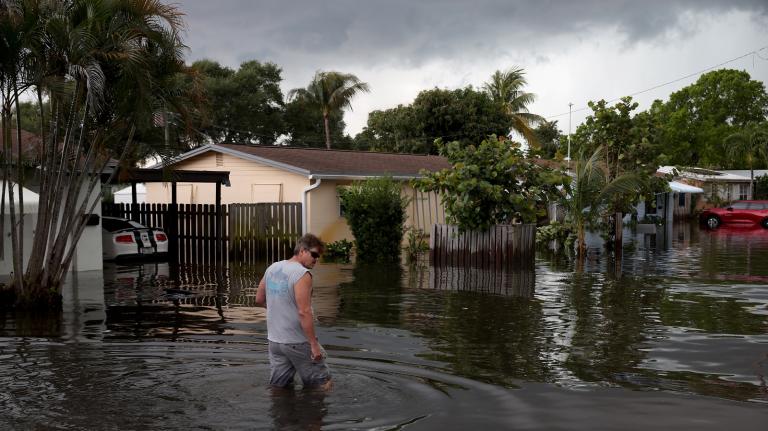 Black & Veatch, a global consulting and engineering firm, today released its “2012 Water Utility Report.” The document is an effort to catalog the vision and concerns of executives in the water industry: people working for municipal water departments, for counties, for investor-owned utilities. (It’s a companion to a similar report detailing the electric industry that they released last week.)
Black & Veatch, a global consulting and engineering firm, today released its “2012 Water Utility Report.” The document is an effort to catalog the vision and concerns of executives in the water industry: people working for municipal water departments, for counties, for investor-owned utilities. (It’s a companion to a similar report detailing the electric industry that they released last week.)
This is not necessarily general interest reading. So we read it for you, as a public service almost as important as ensuring that large municipalities have clean water. And we had two big takeaways.
1. Aging infrastructure is a big problem — and government regulation is the best way to fix it.
When asked to evaluate their concerns for the industry, the respondents ranked three things at the top: aging infrastructure, money, and energy. And all three are mixed up together.
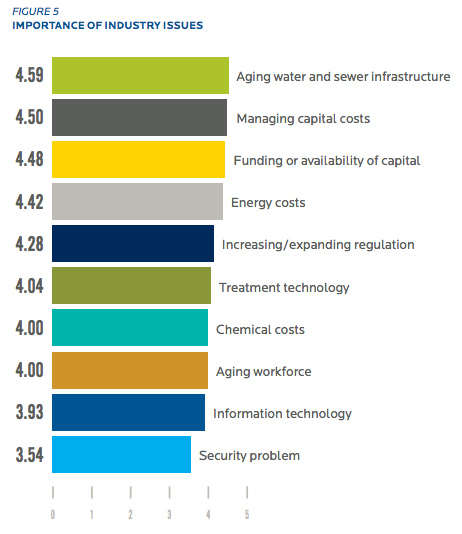
You can’t fix aging infrastructure without capital. Capital is hard to come by and manage. And energy costs eat up a lot of the funding they have; one call-out in the report notes that up to 30 percent of most utilities’ operating budgets go to energy. More on this later.
Then, respondents were asked how best to spur infrastructural investment. The clear winner: imposing regulation.
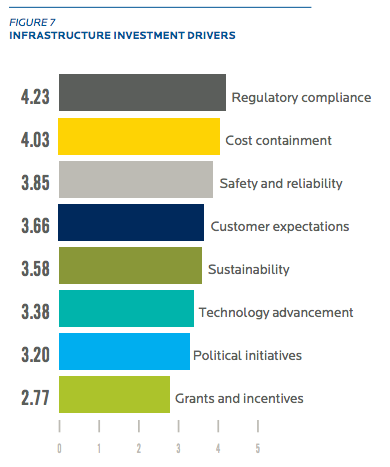
Government regulation leads to public and private sector investment. The No. 1 way to address the water industry’s foremost concern? Have government make them do it.
Are customers willing to absorb these necessary costs? At least half of the respondents indicated they would (right, below), even if they didn’t understand why a rate increase was necessary.
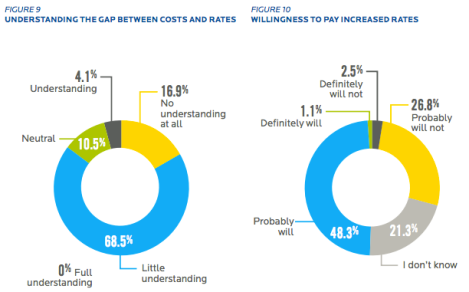
2. Sustainability is a big concern — primarily because of energy costs.
More than half of respondents indicated that sustainability was a motivating concern for their organizations.
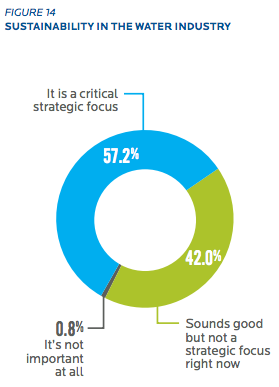
When asked what aspect of sustainability was most important, nearly half cited energy efficiency. After all, if you’re spending 30 percent of your budget on energy, efficiency can save you a lot of money.
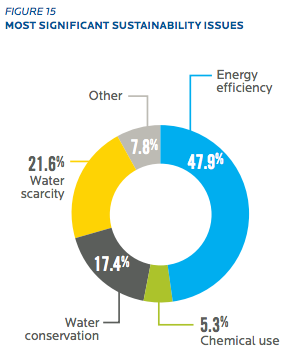
But what is striking is how sustainability concerns change by region. In the Midwest, energy efficiency concerns overshadow any other consideration. But in the warmer, drier West, water scarcity is nearly as dominant a concern.
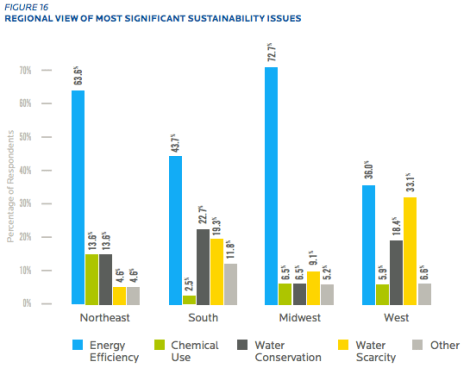
The full report has far more detail and analysis than we provide above. Consider this a CliffsNotes for a book you may or may not want to read.

